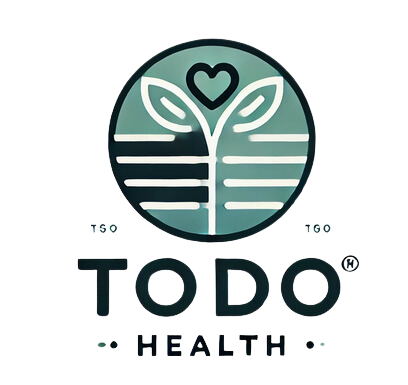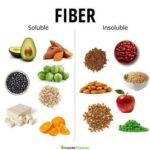If you’re living with PCOS (Polycystic Ovary Syndrome), chances are you’ve battled with stubborn belly fat that just won’t go away—no matter how clean you eat or how often you exercise. This specific kind of weight gain isn’t just frustrating; it can feel demoralizing, especially when your efforts don’t match the results.
For many women with PCOS, belly fat isn’t about eating too much or moving too little. It’s about hormones—specifically insulin, cortisol, and androgens—and how they interact with your body. Understanding the why behind PCOS belly fat is the first step toward managing it effectively.
Let’s break down what’s really going on and explore evidence-based ways to reduce abdominal fat and support your overall health.
Why PCOS Causes Belly Fat
PCOS is a hormonal disorder that affects 1 in 10 women of reproductive age. It’s driven by an imbalance in hormones like insulin and androgens (male hormones such as testosterone). One of the most common symptoms is weight gain, especially around the midsection.
Unlike general weight gain, PCOS-related fat is often visceral fat—the kind that surrounds your internal organs. This type of fat is more inflammatory and linked to increased risk of type 2 diabetes and heart disease.
So, what’s the root of the belly fat issue in PCOS?
1. Insulin Resistance
This is the #1 driver of abdominal weight gain in PCOS. Insulin is a hormone that helps your body use glucose (sugar) for energy. In PCOS, the body often becomes resistant to insulin. As a result, the pancreas makes more of it, and high insulin levels signal the body to store fat—particularly in the belly area.
High insulin also stimulates the ovaries to produce more testosterone, which worsens symptoms like facial hair, acne, and irregular periods, alongside the fat accumulation.
2. High Cortisol Levels
Stress doesn’t just affect your mood—it impacts your waistline, too. Women with PCOS tend to have a heightened stress response, leading to elevated cortisol (your body’s stress hormone). Chronically high cortisol levels encourage the body to store fat in the abdominal area and increase sugar cravings.
Even if your diet is relatively balanced, constant low-grade stress can keep your body in fat-storing mode.
3. Low Progesterone and Estrogen Imbalance
In a healthy menstrual cycle, estrogen and progesterone rise and fall in a rhythmic pattern. But in PCOS, ovulation often doesn’t happen consistently. This leads to lower progesterone levels and estrogen dominance, which also contributes to fat storage—especially in the belly and hips.
4. Inflammation
PCOS is now recognized as a low-grade inflammatory condition. Inflammation can increase insulin resistance and interfere with hormonal signals that regulate hunger and fat storage. Foods high in sugar, refined carbs, and seed oils can fuel this inflammation, making it even harder to lose belly fat.
How to Shrink PCOS Belly Fat (Without Obsessing Over the Scale)
The goal with PCOS isn’t to go on extreme diets or do hours of cardio. Instead, it’s about restoring hormone balance, improving insulin sensitivity, and supporting metabolic health. Let’s walk through simple, sustainable strategies that work with your body—not against it.
1. Prioritize Protein at Every Meal
Protein helps balance blood sugar, keeps you fuller longer, and reduces cravings. It also helps preserve lean muscle mass, which boosts your metabolism. Women with PCOS should aim for 20–30 grams of protein per meal, from sources like:
-
Eggs
-
Chicken, turkey, or fish
-
Greek yogurt
-
Tofu or tempeh
-
Protein powders with clean ingredients
Pair your protein with fiber and healthy fats to slow digestion and prevent blood sugar spikes.
2. Choose Smart Carbs (Not No Carbs)
Cutting carbs entirely can backfire. Instead, focus on low glycemic index carbs that don’t spike insulin. These include:
-
Sweet potatoes
-
Quinoa
-
Lentils
-
Chickpeas
-
Berries
-
Oats (preferably steel-cut)
Pairing carbs with fat or protein slows down their absorption and reduces the insulin impact.
3. Strength Training Over Cardio Marathons
You don’t need hours of cardio to reduce belly fat. In fact, too much can raise cortisol. Strength training helps build muscle and increase insulin sensitivity—two crucial components in managing PCOS weight gain.
Aim for 3–4 sessions per week focusing on compound movements like squats, lunges, rows, and presses. Add light walks or yoga on rest days to support recovery and stress relief.
4. Support Gut Health
Your gut and hormones are deeply connected. A healthy gut microbiome can improve insulin sensitivity and reduce inflammation. For PCOS belly fat, this can be a game-changer.
Focus on:
-
Fermented foods (sauerkraut, kimchi, kefir, plain yogurt)
-
Prebiotic foods (onions, garlic, asparagus, green bananas)
-
A high-fiber diet
-
Minimizing processed foods and excess sugar
If you’re frequently bloated, consider food sensitivity testing or working with a professional to try a short-term low FODMAP approach.
5. Balance Stress to Lower Cortisol
It’s easier said than done, but managing stress is essential. High cortisol will keep you stuck in the cycle of fat storage, especially around your belly.
Try:
-
Daily walks outside
-
10 minutes of deep breathing or meditation
-
Limiting screen time before bed
-
Journaling or gratitude practices
-
Getting 7–8 hours of quality sleep
Stress management isn’t a luxury—it’s a requirement for PCOS wellness.
6. Supplements That Support Insulin and Hormones
While food is your foundation, certain supplements can give your body an extra edge:
-
Inositol (Myo & D-Chiro): Improves insulin sensitivity and ovarian function
-
Magnesium: Supports blood sugar control and stress reduction
-
Omega-3s: Help fight inflammation
-
Berberine: A natural compound that may work similarly to metformin in some women
Always speak to a doctor before starting new supplements, especially if you’re on medications.
7. Watch Out for Hidden Sugar and Inflammatory Oils
Many “healthy” products are loaded with hidden sugars or inflammatory oils (like soybean or canola). These can worsen insulin resistance and inflammation. Read labels and aim for whole, minimally processed ingredients.
Final Thoughts
Shrinking PCOS belly fat is less about dieting and more about understanding your hormones. Once you begin to support insulin sensitivity, reduce inflammation, and manage stress, the fat starts to shift—slowly but surely. Progress may not happen overnight, but your body will thank you for the consistency.
Remember, PCOS is not your fault. You didn’t choose this diagnosis, but you can choose how you respond. With the right approach, it is entirely possible to feel better, stronger, and more in control of your body again.






